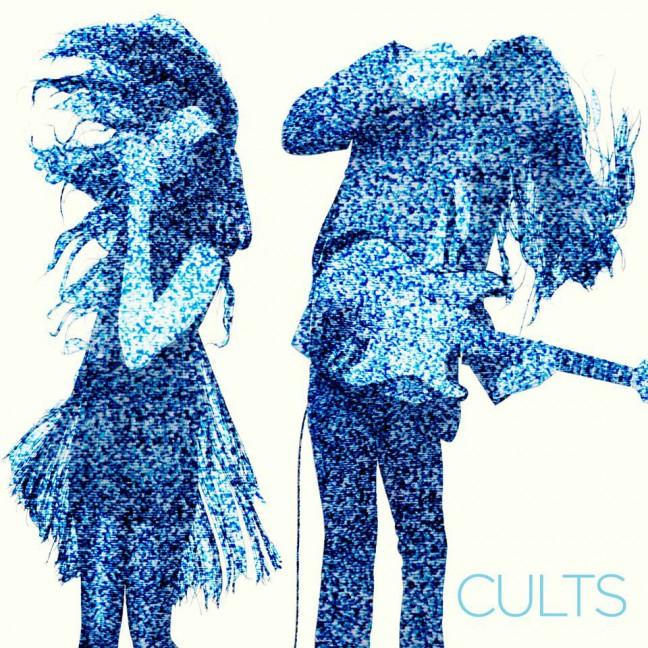Taking a very different approach to post-break-up musical expression than Carly Simon, the sophomore album of Madeline Follin and Brian Oblivion, who perform as Cults, is anything but a musically simplistic attack on the arrogance of men. The Cults perspective is one of mourning over the end of the relationship between the two lead band members. But more importantly, it’s a proclamation that, although their relationship may have ended, musically they are stronger and more confident together than ever before.
The album is titled Static. This is ironic, considering it finds the band ditching their lo-fi, fuzzy electric static for a crisper and cleaner sound. However, in terms of lyrics, the title seems fitting. Follin’s and Oblivion’s contentedness with their poppy stasis could be considered the first stage in a slippery slope to complete popdom. Static delineates from the indie-cult end of the spectrum, where themes like love’s end are scoffed at for their mainstream nature. Coming off their debut album, Cults, they had the potential to either turn ultra-indie or join the pop ranks. Critics now fear that they have chosen the latter. But what distinguishes this duo’s post-break-up album is that the album, as a whole, tells a comprehensive story of the emotional reaction to ending a romantic relationship. The lyrics may often be simplistic and cliché, but for listeners who have been on that emotional rollercoaster, they’re bound to strike a chord. At times, the lyrics can even be vulnerable and raw in songs like “High Road” and “Were Before.”
The music, with assistance from production manager and indie giant Ben Allen, is extremely advanced and far crunchier than the easily-digestible lyrics. The band uses reverberating organ bass tones and layers of vocals to create a powerful choral feel. It’s incredibly textured, and tempo and instrumentation varies throughout each song. The track “Were Before” incorporates violin and wobbly guitar riffs, and features vocals from both Oblivion and Follin. Their vocal pairing reflects regret and longing for the past. Their sound is full and atmospheric, but their tone is darker and ominous. It lacks the light motifs of infatuation and love expressed in their debut album Cults.
“I Know” is an impeccable choice to start. It begins simply with a quivering guitar and a light keyboard. A shaky organ is added and, finally, Follin’s layered vocals give the effect of a plea. Coming off the energetic, fast-paced groove of their previous album, this opening track embodies a new mentality addressed throughout Static. The sound reflects a grand exhale of the lead members. Here they put the painful past behind them, take a breath and launch into singing about it.
“High Road” is the most notable track, musically. Madeline Follin’s sugar-coated vocals are clear and unwavering; she explores her vocal range rather than remaining at an alto, common to the current indie culture. The variety in tempo and the gloomy background effects create a compelling tension that grabs the attention of the listener. These musical conventions identify the song as unique among the lyrics more reminiscent of melodramatic tween blues. The lyrics, too, are reflective and show deeper emotion than baseline grief.
“Keep Your Head Up,” in contrast, is an appeal to stay strong and focus on the future, and it provides an optimistic momentum into the second half of the album. Static ends with “No Hope,” a foreboding glimpse into the future of their relationship, but it also shows great promise for their musical potential.
4 out of 5 stars




















